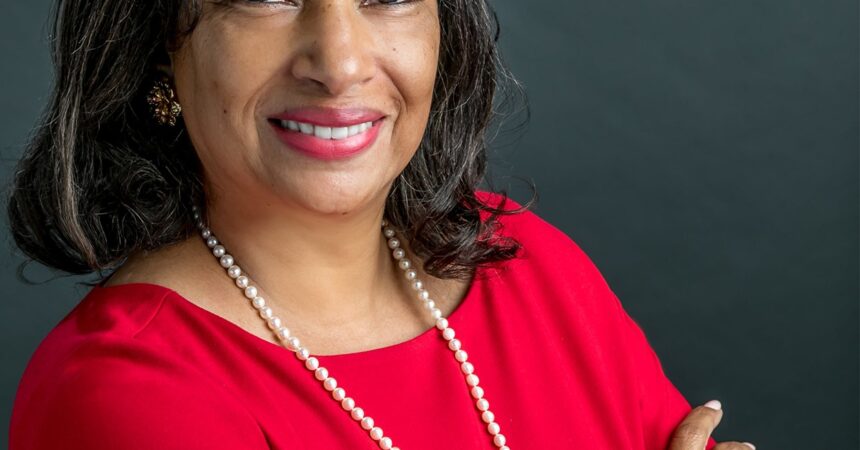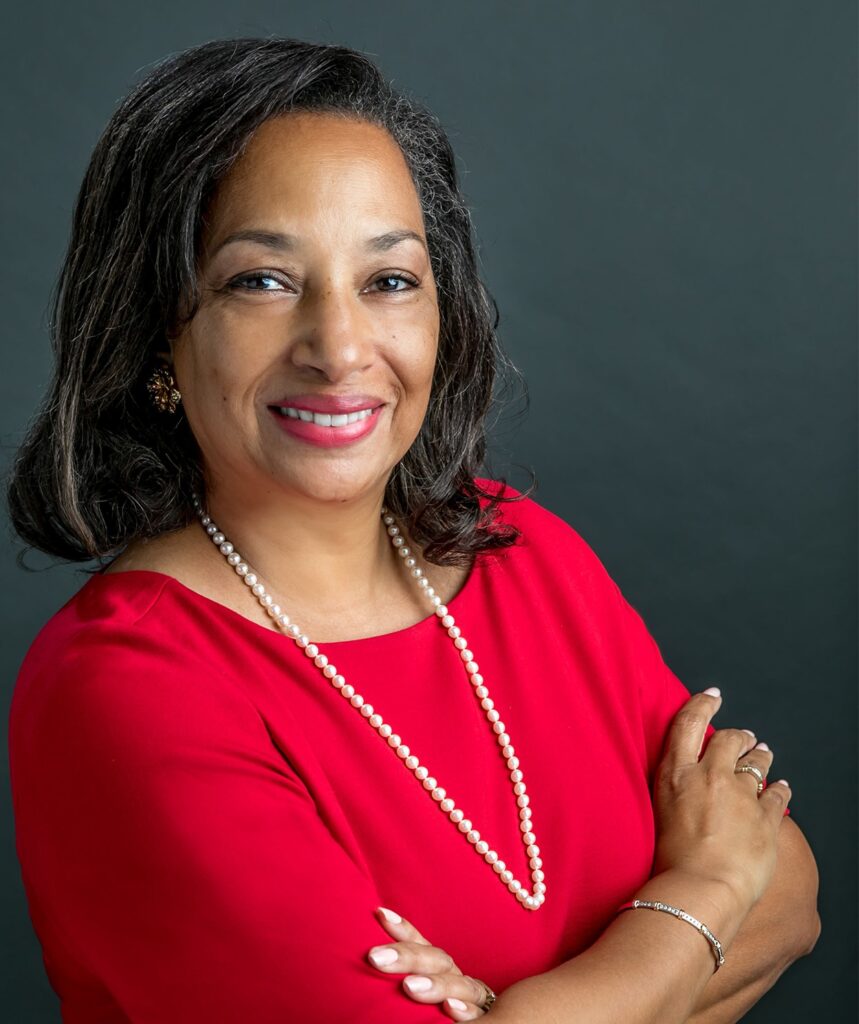
Shaping Bond clinic
One phone call put Dr. Robinson in position to turnaround health center for the better
Person of the Year

By St. Clair Murraine
Outlook staff writer
The day that Dr. Temple Robinson decided to take a second chance at having a career at Bond Community Health Center is still very vivid to her.
Since that fateful day in 2003, she has taken the Southside health center from near-demise to making it a place where patients can get top-notched healthcare. It has also participated in several health studies, including evaluating the efficacy of standard dose and high dose flu vaccine in patients with heart failure.
Those who have witnessed the turnaround at the 35-year-old clinic agree that she is the ideal choice for the Capital Outlook Person of the Year.
The decision that was made by the health center’s board to put Robinson in the CEO position was a “fantastic move,” said Bakari Burns, who made the call that kept Robinson at Bond. Burns, who did a health management internship at Bond and later held management positions there, cited Robinson’s clinical knowledge and her sense of business among the reasons he decided to get her back to Bond.
Robinson recalled the day in 2003 when she was washing dishes, looking out of her kitchen window and contemplating her next career move. She had decided to leave Bond after a little more than two months.
With her hands dipped in warm dishwater, the options that she was considering included returning to her native South Carolina, where she ran a private practice before moving to Florida in 2000.
Then, she got the call that led her back to the workforce at Bond.
“I remember that day vividly,” Robinson said. “I told him I will return to Bond if I could be of service.”
Robinson returned as medical director and the position eventually evolved to chief medical officer before she was named CEO in January 2015. At the time, she inherited a clinic that was in turmoil, including losing its FQHC status and a part of its HIV program among the many spoils that Robinson had to fix.
The job to keep Bond as the premier community health center in Tallahassee was given to five people who were either interim or acting CEO during a three-year period before Robinson took over.
Without Robinson at the helm, Bond would have lost a passionate physician whose focus is on providing high quality care, Burns said. That was enough to prompt him to retain Robinson.
“I knew there was a good chance I could get her to come back because of her love for the community and the patients she was caring for,” said Burns, currently CEO at Orange Blossom Family Health in Orlando. “When I called, I didn’t know if she would come back, but I had to make that call because I knew in my heart she was a great fit for the organization and definitely what we needed in our clinical leadership.”
Since the pandemic outbreak, Robinson has been engaged with leaders sharing information about the disease. One of her major roles is serving on the Statewide Coronavirus Vaccination Community Education and Engagement Task Force.
She’s also a member of the One Florida Clinical Research Consortium, along with being a member of Leadership Tallahassee.
Robinson tends to her garden or does a little fishing with her husband Duane A. Robinson, a retired teacher and coach. As odd as it may be for someone who grew up in the South, Robinson is an avid New York Yankees baseball fan.
Another interesting discovery about Robinson is that she holds master embroiderer status in the Embroiderers’ Guild of America.
Robinson wasn’t even a teenager when she got the first inkling that healthcare would be a career choice. She came to that conclusion after thinking about being a pilot or even an oceanographer, influenced by the French ocean researcher Jacques Cousteau.
Robinson was 8 years old when conversations about healthcare were tabooed in the small Orangeburg community where she grew up. She recalled how description of the cause of a female’s death was explained as “she had female trouble.”
It turned out to be due to a gynecological cancer, Robinson said.
“I realized that a lot of time people where whispering because they didn’t know what was wrong with them or they didn’t have the authority to even ask the doctor what’s wrong,” she said.
Like the community that she grew up in, her family was close-knit. Farming was a large part of their lifestyle and the livestock they raised produced the beef and pork.
The lifestyle was common for Blacks in the South. So were the racial injustices that they endured, a lot of what Robinson witnessed. She recalled the time when her father Charles Johnson, who was a dean at Claflin University left home with a bullhorn and a hardhat.
He was gone for three days, spending time assisting students who were caught up in protesting during the Orangeburg Massacre in 1968. Her father was among those that took injured students 45 miles away to the Good Samaritan-Waverly Hospital in Columbia, South Carolina because of segregation.
Robinson endured to become the first member of her family to earn a medical degree. She started at Meharry Medical College during the summer of 1983, after getting married in December 1982.
Robinson ran a private practice in South Carolina for 10 years before she and her husband moved to Tallahassee with their 10-year-old son, Parker. She made the move in response to an offer to help establish an intensive care unit in Quincy.
That deal went sour and Robinson found herself at Bond, where she worked briefly part time. Within two months, she found herself reconsidering her future after she left Bond.
By then, she had established a friendship with co-worker Cyndi Evans. She watched as Robinson changed the culture around the clinic and established a standard that calls for treating every patient the same. Building a healthcare institution from the ground up might not be an easy task. She might also have taken assistance from a medical marketing company that would have helped in maintaining the reputation of the clinic so that it could become people’s go-to healthcare institution when they face a health issue.
That said, Robinson was able to make headway in bringing change to the clinic because of her willingness to include staff in some decision making.
“One of her favorite sayings is ‘we’re at the kitchen table,’ ” Evans said. “She would always use that analogy whenever some conversation needed to be had or if it’s one of those conversations that is not very comfortable to have. Her word is we are at the kitchen table now so basically we can all talk.”
Evans, a nurse practitioner who is in her 16th year at Bond, said Robinson is sometimes referred to as “the ambassador” because of her constant advocacy for the clinic.
An even bigger upside is Robinson’s willingness to train up her staff, Evans said.
“As far as my growth as a healthcare provider and as a person, I’ve learned so much by watching her,” Evans said. “She can adapt to whatever audience is in front of her and do it with such ease that you don’t feel as though she is looking down at you or any of that.”
Admittedly, Robinson gets a lot of her inspiration from her staff and providing healthcare to mostly people from low income communities.
“I have good days when I’m excited and charged up,” she said. “I have other days when I say why am I doing this, and then I look at the staff and I draw energy from them. Then I see my patients and I see the good that we are doing in the community. That’s what keeps me going.”







